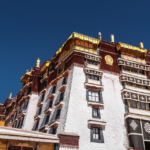Outline:
- Living With, Not Above
- The Language of the Land
- Humility as a Way of Belonging
- Lessons for a World Out of Balance
- Returning to Right Relationship
- FAQs
We were never meant to be separate from nature.
Long before smartphones and skyscrapers, before calendars and clocks, people woke with the sun and slept beneath stars. We drank from rivers, tracked seasons by instinct, and spoke of the land not as a resource—but as a relative. Today, that deep connection has grown faint. We live in climate-controlled boxes. We speak of “saving the planet” as though it’s something out there, separate from us. But many Indigenous cultures never lost that thread. For them, nature is not a place. It is a living presence. A teacher. A mirror. Their wisdom offers more than nostalgia. It offers a way forward. A way back into right relationship with the earth—and with ourselves.
Living With, Not Above
One of the most striking differences between many Indigenous worldviews and Western thinking is this:
In Indigenous traditions, humans are part of the web, not above it.
Among the Lakota people, there is a phrase: Mitákuye Oyás’iŋ—“All my relations.” It is a prayer, a worldview, a daily reminder that the birds, trees, rivers, and rocks are kin, not commodities.
This perspective changes everything.
You don’t pollute a river you consider your ancestor.
You don’t take more than you need from a forest you call your sister.
The Haudenosaunee (Iroquois) speak of the “Seventh Generation Principle,” which asks every decision-maker to consider the impact of their actions on those yet unborn. This is not an environmental policy. It is a philosophy of belonging.
To live with the land is to live in conversation with it—to take only what is given, to give back what is taken, and to listen before you act.
The Language of the Land
Indigenous wisdom is not only found in words. It lives in practice.
It’s in the way seeds are saved, fires are tended, stories are told, and tracks are read in dust.
It’s also in the language itself. Many Indigenous languages encode ecological knowledge directly into their grammar and metaphors.
In the Potawatomi language, for example, most nouns for living things are verbs. A tree isn’t an object. It is “to be a tree.”
This subtle shift reminds the speaker that life is not static. It is unfolding, relational, alive.
Where Western science often studies nature from the outside, Indigenous wisdom walks within it.
Not to dominate, but to understand. Not to measure, but to honor.
Humility as a Way of Belonging
There is a quiet strength in the way many Indigenous traditions approach the world. A reverence. A humility that comes not from self-deprecation, but from awareness of scale.
- To stand beneath a mountain and know you are small.
- To plant with the moon and pray for rain.
- To thank the deer you hunt—not out of guilt, but out of respect.
In Western modernity, we often seek control: over time, over outcomes, over nature itself. But Indigenous wisdom teaches co-existence, not conquest.
Humility, in this sense, is not weakness. It is relationship. It is knowing that the earth owes us nothing—and yet still feeds us. That we are not masters, but guests.
Lessons for a World Out of Balance
We live in a time of urgency. Melting ice caps. Dying forests. Rising heat.
And while technology will play a role in solutions, something deeper must shift too—our mindset.
Indigenous knowledge systems offer a different foundation.
They teach us to:
• Slow down and listen to the land
• Honor limits as sacred, not inconvenient
• Think in generations, not quarters
• Act with gratitude, not entitlement
This is not about romanticizing the past or appropriating sacred traditions. It is about learning from cultures that have thrived in balance with their ecosystems for thousands of years.
Their voices have often been silenced, ignored, or erased. But perhaps now, as the earth itself begins to speak louder, we are ready to listen.
Returning to Right Relationship
Nature does not need our saving. We need saving—from the illusion that we were ever separate from it.
Indigenous wisdom does not offer easy fixes. It offers something more lasting:
A different way of seeing. A different way of being.
- To walk gently.
- To speak with respect.
- To give thanks.
- To remember.
You don’t have to live in the forest to live in relationship with it.
You simply have to remember that the forest is already inside you.
Let this be the beginning—not of a return to the past,
but of a return to right relationship—with the earth, with each other, and with the part of you that still knows how to listen.
FAQs
1. Can Indigenous wisdom really help in solving today’s environmental crises?
Yes. While modern science is essential, Indigenous worldviews offer time-tested principles of sustainability, reciprocity, and long-term thinking that modern systems often overlook.
2. How can I respectfully learn from Indigenous perspectives without appropriating them?
Seek out Indigenous authors, educators, and community leaders. Listen, support, and amplify their voices—without extracting or imitating sacred practices.
3. What’s one small way to apply this wisdom in daily life?
Begin with gratitude. Treat nature as a relationship, not a resource—whether you’re walking in a park, buying food, or simply noticing the sky. Gratitude builds awareness. Awareness builds care.








